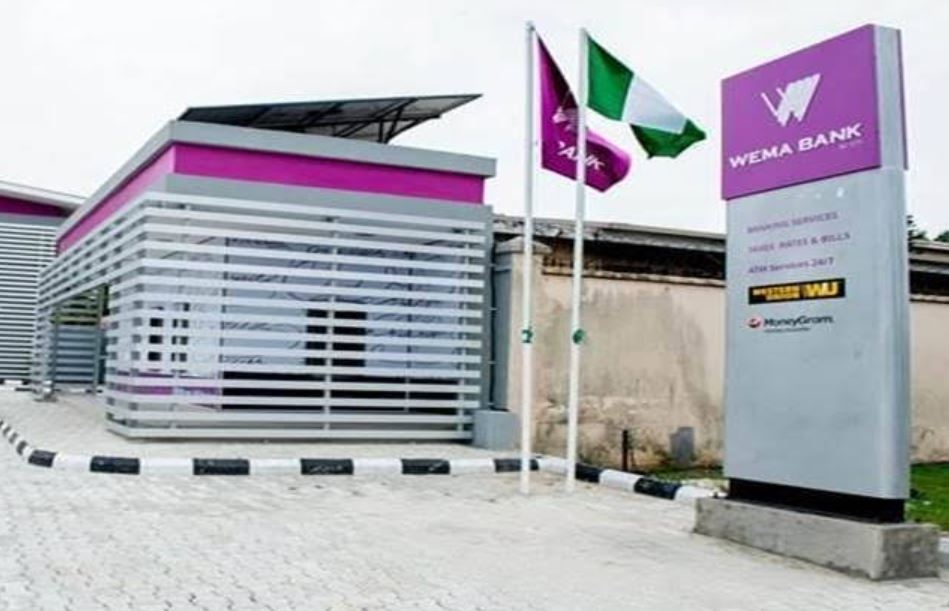Wema Bank Plc has reported an impressive increase in both gross earnings and profitability, marking its best financial performance in at least five years.
Strong interest income and the expansion of strategic assets drove the bank’s gross earnings to N433.43 billion in the year that ended on December 31, 2024, according to its audited financial statements.
As the bank took advantage of rising interest rates and fortified its loan and investment portfolio, profit before taxes surged by 141 percent to N102.5 billion, setting a new record.
A dividend payment of N1.00 per share for the 2024 fiscal year was suggested by the Board of Directors in the report.
Read also: GTCO’s HabariPay records N3.8 billion profit in 2024
Loan disbursements and government securities investments make Wema Bank’s major revenue streams
In 2024, Wema Bank’s primary revenue streams were loan disbursements and government securities investments.
Loan revenue accounted for roughly 66 percent of the bank’s total interest income, generating N233.85 billion, a 91 percent increase over the previous year.
A 98 percent increase over the previous year, the bank also received N113.68 billion from government investments (such as bonds and treasury bills), which accounted for roughly 32 percent of interest income.
In addition to giving out more loans and increasing its investments in safer government securities, the bank also took advantage of high interest rates (caused by CBN’s policies to combat inflation).
N1.125 trillion of the N1.237 trillion in gross loans that Wema Bank disbursed came from long-term loans.
Wema Bank kept ₦111.11 billion in treasury bills and ₦712 billion in federal government bonds, which are far safer investments than loans.
Wema Bank’s loan portfolio still has some risks, although it has made significant profits from investments and loans.
As a precaution against potential losses (also known as Expected Credit Loss, or ECL), the bank set aside N36 billion because some loans might not be fully repaid.
The bad loan provision, which totals N27.33 billion, primarily applies to loans that are already experiencing significant problems (Stage 3 loans).
The actual loans remaining on the bank’s books (net loans) were ₦1.201 trillion after this sum was subtracted.
Because of the current high-interest-rate environment, Wema Bank, like other Nigerian banks, had to deal with higher funding costs; despite its strong earnings, due to the higher cost of funds, interest expenses on bank deposits increased by 732.9 per percent, and net interest margins were impacted by the 139.9 percent increase in borrowing costs.
Monetary tightening has had a significant impact, as evidenced by the ₦103.4 billion total interest paid on customer deposits. Although these cost pressures were substantial, the bank’s ability to maintain a high net interest income helped lessen their effects.
Wema Bank’s digital banking contributes to rise in revenue
Thanks to its innovative digital banking and wide range of services, Wema Bank’s non-interest revenue increased dramatically in addition to interest income. The increase in net fees and commission income to N55.576 billion was fuelled by FX exchanges (N15.03 billion), digital goods (N14.073 billion), management fees (N8.023 billion), and account maintenance fees (N7.364 billion).
Wema Bank’s digital innovations, Coop Hub (a platform for cooperative societies) and ALAT Xplore (Nigeria’s first teen mobile banking app), may have been crucial to this expansion.
By drawing in younger users, ALAT Xplore increased e-banking fees, card transactions, and account openings. By assisting cooperative societies with digital financial management, Coop Hub increased fund transfers and transaction-based income.
Read also: Fidelity Bank records N385 billion pre-tax profit in 2024
Wema Bank’s ₦3.593 trillion in total assets
The majority of Wema Bank’s ₦3.593 trillion in total assets came from customer deposits. A rise in shareholder funds to N256.421 billion was fuelled by retained earnings of N103.251 billion, share capital of N10.715 billion, and a share premium of N56.431 billion.
To comply with regulatory requirements and enhance its capital base, Wema Bank raised its share capital and premium through an N40 billion rights issue.
Furthermore, the bank’s chairman reiterated the bank’s pledge to raise N200 billion in new capital in the 2024 Annual Report, saying, “To meet the new CBN capital requirements, the bank will be raising N200 billion in new capital as approved by the shareholders at the last Annual General Meeting. This will be broken down into N150 billion Rights Issue and N50 billion in Special Placement.”
The share price of Wema Bank closed at N10.7, up 18.8% in 2025.
















